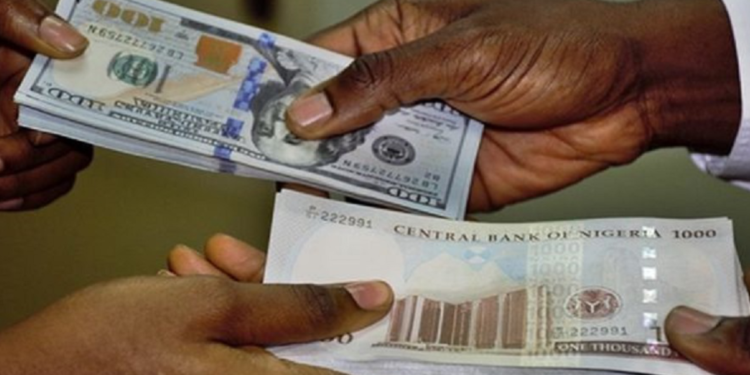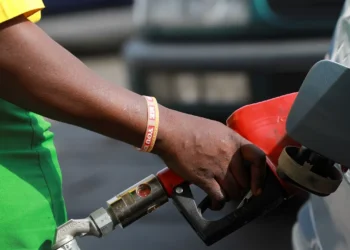The Nigerian Naira took a sharp plunge against the US Dollar on Monday, reaching an average exchange rate of 1,030 Naira to 1 US Dollar in the parallel market. This steep decline marked a staggering 8.42% loss for the local currency compared to its closing rate of 950 Naira to 1 US Dollar just the previous Friday. This sudden drop has left both traders and citizens concerned about the stability of the country’s currency.
The recent dip in the value of the Naira represents the first time the currency has weakened since the Central Bank of Nigeria (CBN) began clearing some of its foreign exchange (FX) backlog last week. Currency traders, commonly known as Bureau De Change (BDC) operators, revealed that the Naira was trading in the range of 990 to 1,030 Naira to 1 US Dollar on the parallel market.
One trader, Awolu, stated, “The dollar is N995 if you want to sell. If you want to buy from me, it is N1,020.” Kadri, another trader, added, “The dollar is N960 if you want to sell. If you want to buy, it is N990.”
Aminu Gwadabe, President of the Association of Bureau De Change Operators of Nigeria, shed light on the reasons behind the Naira’s depreciation. He pointed out that people who had previously purchased the US Dollar at higher rates were now resisting the currency’s fall, in reaction to the CBN’s moves to clear the FX backlog. The CBN had initiated payments of outstanding matured FX forwards to various banks last week in a bid to boost liquidity in the foreign exchange market.
This decision led to a notable appreciation of the Naira, with the currency gaining roughly 220 Naira after closing the previous week at 950 Naira to 1 US Dollar on the parallel market. However, the Naira has seemingly lost its newfound momentum, closing at 1,030 Naira to 1 US Dollar, as confirmed by Aminu Gwadabe. He explained, “In the afternoon, it was N1,015 and N1,020/$. It closed at N1,030/$.”
Gwadabe further emphasized that market speculators were concerned about the sustainability of the Naira’s recent gains. He stated, “Speculators are always looking at elements of sustainability. Once they sense that it (the injection) is not continuous, they begin to react. They begin to react. It is the reaction of the market we are witnessing. Also, there is resistance. There are people that bought at a higher price that this does not favor. People are not willing to take further losses.”
The uncertainty surrounding how liquidity will be injected into the retail segment of the FX market has also contributed to the Naira’s decline. Gwadabe expressed concern, saying, “The parallel market is where the retail end is. And as of now, there is no information as to how liquidity will come into that sector. All we have is that BDCs will be included to advance the official foreign exchange market. We cannot wait in the FX market.”
Additionally, the Naira depreciated by 3.6% in the official market, closing at 809.02 Naira to 1 US Dollar on Monday, down from 780.23 Naira to 1 US Dollar on the previous Friday, according to data from FMDQ OTC Securities Exchange.
The sudden and substantial drop in the Naira’s value is raising concerns among Nigerians, with many anxiously monitoring the situation in hopes of a potential recovery in the near future.











